The Crossing (2000): A George Washington Christmas
In December of 1776, the Continental Army was weary and discouraged. After a defeat at Long Island in August and a series of delaying actions through the remainder of the fall, General George Washington had led his men into New Jersey, pursued by the larger army of British General William Howe. With less than two-thousand able-bodied men out of an initial force of twenty-thousand, and both material supplies and morale running low, the Continental Army seemed on the verge of collapse, perhaps dooming the American Revolution as a whole. The story of how Washington turned around this seemingly impossible situation is dramatized in the A&E television movie The Crossing (2000), based on the novel by Howard Fast (author of, among many other books, Spartacus).
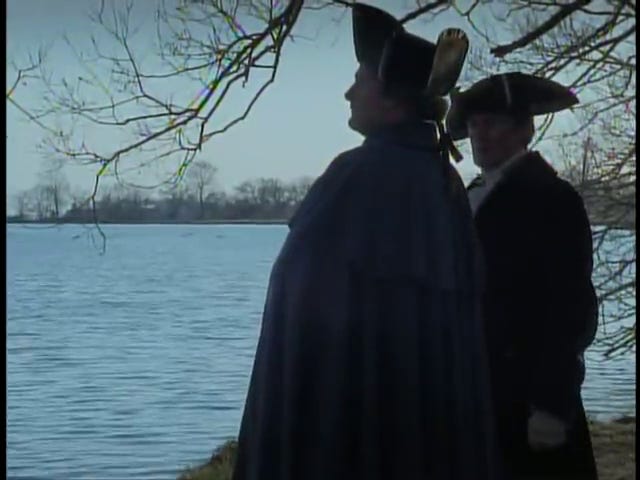
The Crossing begins with General Washington (Jeff Daniels) ordering his men to retreat across the Delaware River into Pennsylvania. Luckily, the Army contains a (racially integrated!) regiment of boatmen, commanded by Marblehead, Massachusetts fisherman Colonel John Glover (Sebastian Roché). Glover commandeers Durham boats used by the Durham Iron Works. He informs their owner, Robert McKenzie (Julian Richings) of the seizure after the man exits his outhouse; McKenzie is extremely unhappy about this.
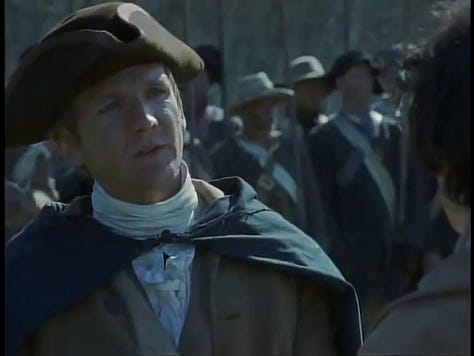
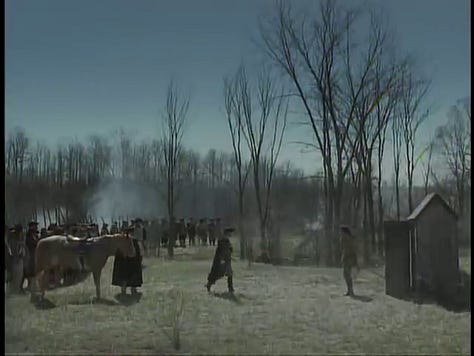
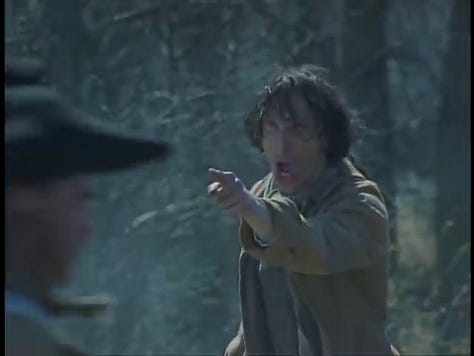
Upon arriving on the west bank of the Delaware, General Hugh Mercer (Roger Rees), a trained doctor who had served with Washington in the French-and-Indian War, tells Washington they cannot continue without supplies, and Washington dispatches Major General William Alexander, Lord Stirling (Ned Vukovic) to find the armies commanded by Generals Horatio Gates (Nigel Bennett) and Charles Lee, which were supposed to rendezvous with them. A man named Thomas Barclay (Shaun Austin-Olsen) offers Washington his house as headquarters. On December 20, Washington dictates a letter for Congress to Alexander Hamilton (Steven McCarthy), who is here depicted as already serving as his aide-de-camp, although in reality Hamilton did not join Washington’s inner circle until March of 1777. Mercer reads Washington an intelligence report from Van Hagen, a Dutch merchant in New York, who reports that General Howe has not crushed the Continental Army because he is distracted by a certain Mrs. Elizabeth Lloyd Loring, and has dispatched a garrison of twelve hundred German mercenary Hessians to Trenton instead. This gives Washington the seed of an idea; he takes Mercer on a scouting mission to Trenton, and they encounter Stirling and General John Sullivan (Karl Pruner), who informs them that General Lee was captured while at a tavern.
General Gates and his army arrive shortly thereafter. Washington informs his officers that Congress has abandoned Philadelphia for Baltimore, then lays out a plan to cross the Delaware on the night of December 25 and attack the Hessians in Trenton before dawn, surmising that they will be suffering the aftereffects of the feasting and drinking they did on Christmas. General Gates thinks the plan is folly, stating that the Continental army are not soldiers, that they cannot hope to defeat trained European regiments, and that the Hessians will find out about the plan and blow them to smithereens in the river, finally accusing Washington of incompetence. Washington orders Gates to leave camp without discussing the plan or taking his men with him, and tells Hamilton to hold him at gunpoint to make sure he obeys.
Glover and General Henry Knox (John Henry Canavan) argue when Knox wants his artillery taken across the river first. General Nathanael Greene (David Ferry) tells the commanders not to let their men know the plan, but agrees to let Capt. Heineman (Kris Holden-Ried), the leader of a Pennsylvania Dutch regiment tell his lads they are fighting Hessians ahead of time so they do not panic later, since no-one else will understand what they say. Washington takes over an inn next to a ferry and seeks the counsel of the old innkeeper, Samuel McConkey (Donald Ewer), who tells him of the strange and icy conditions they will face on the Delaware. Nevertheless, Washington decides to go ahead with his plan, and makes Glover the supreme commander for the duration of the crossing. After the portly Knox complains that Glover insulted him by saying that “in an army that hasn’t eaten in three months, it’s damn near treason to be fat,” Washington rebukes them for bickering, but then tells Knox, “Don’t swing your balls or you’ll swamp the boat.” Greene, Knox, and Washington take the same boat, braving sleet, snow, and a biting wind as they pass over the icy water. During their trip, one of the boatmen sings the sea shanty “Sally Brown” to pace the rowers. The depiction of the crossing in this film is more historically accurate than the most famous painting of it, by Emanuel Leutze; the boats used were large, flat Durham boats, rather than small rowboats, and Washington certainly did not stand up next to the Stars and Stripes (a flag which did not yet exist in 1776).
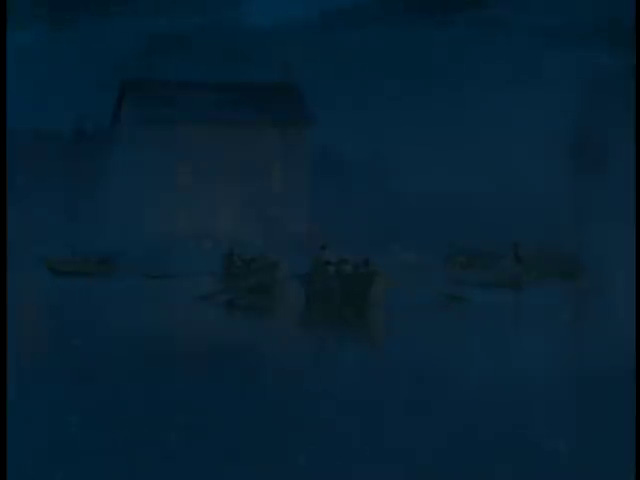
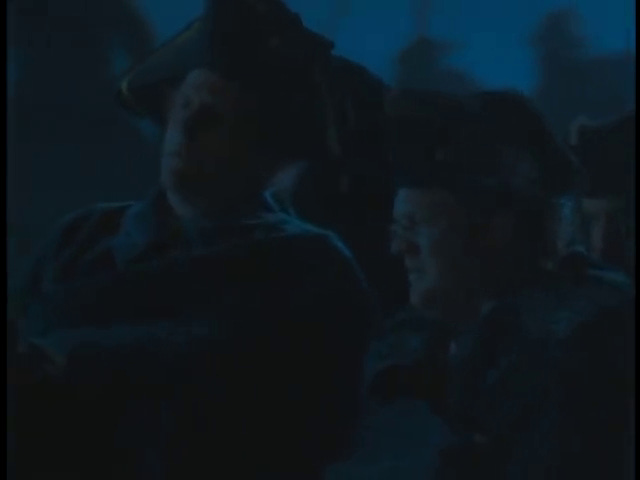
Moving the army across the river takes longer than Washington had planned, in part due to floating ice. (The Little Ice Age likely contributed to the bitterness of the weather, and the Delaware’s propensity to freeze). Two other columns were supposed to cross at other points on the river; one was unable to cross, and the other partially crossed, but then retreated because they were unable to transport their artillery. Washington’s force splits up, with Washington and Greene commanding one force, which takes a detour inland (eastward) before moving south, and Sullivan and Glover another group, which marches by a more direct road. The sun is fully up before Washington’s men approach Trenton. Washington sends Hamilton to tell Sullivan that they attack at eight o’clock, and a local tells Washington that a house outside the town is occupied by Hessians. After Hamilton returns from delivering the message, Washington dispatches him to silence the guardhouse; Hamilton and another soldier he brings with him surprise the four Hessians inside and kill them in brutal hand-to-hand combat.
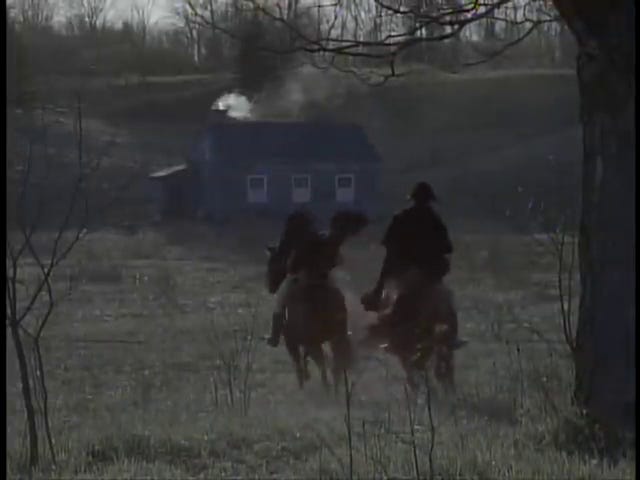
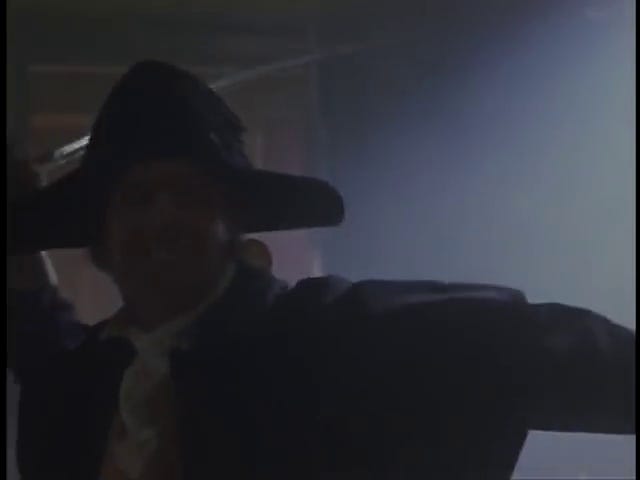
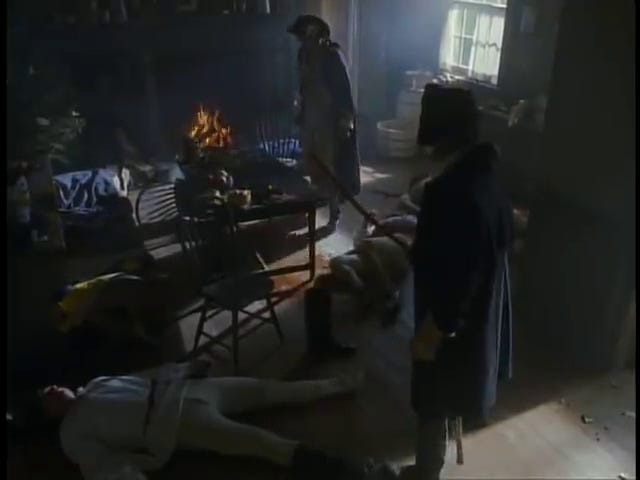
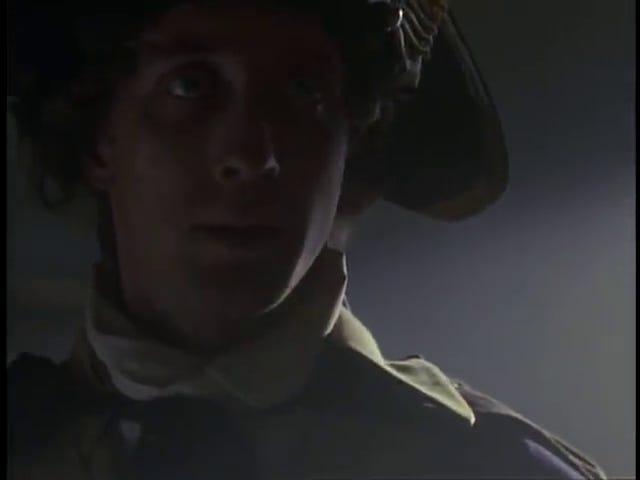
Both columns of the army then attack Trenton, with Washington’s men entering via Pennington Road, while Sullivan’s take the only bridge over Assunpink Creek. The Hessians are caught unawares and scramble to get into formation, even though many of them are still in their nightgowns. By contrast, their leader, Colonel Johann Rall (James Kidnie), takes the time to fully dress himself before taking command of his soldiers. Knox’s artillery are able to get into position before the Hessians can bring their guns to bear, and kill or wound many of the Hessian artillerymen, while any of the Hessians attempting to cross the bridge are blocked by Sullivan’s soldiers.
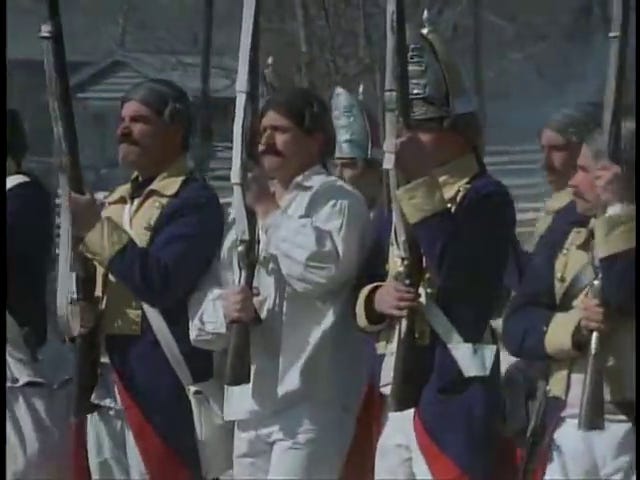
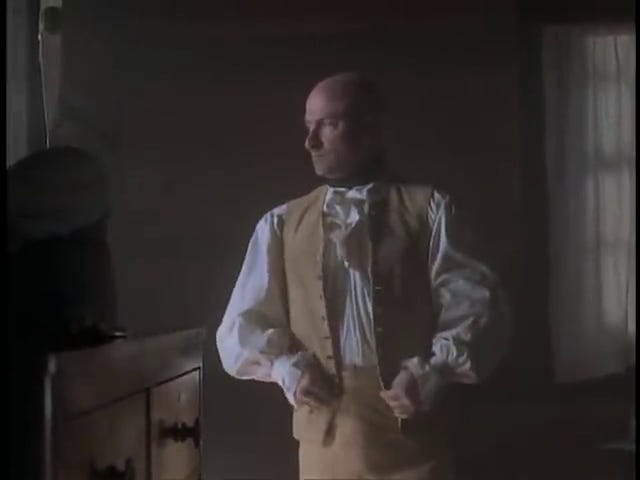
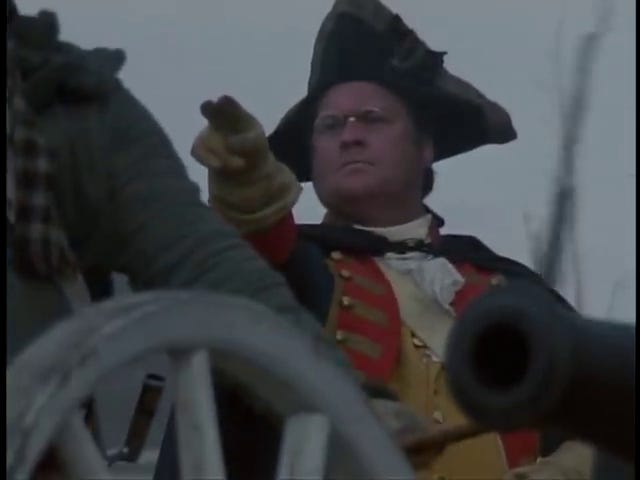
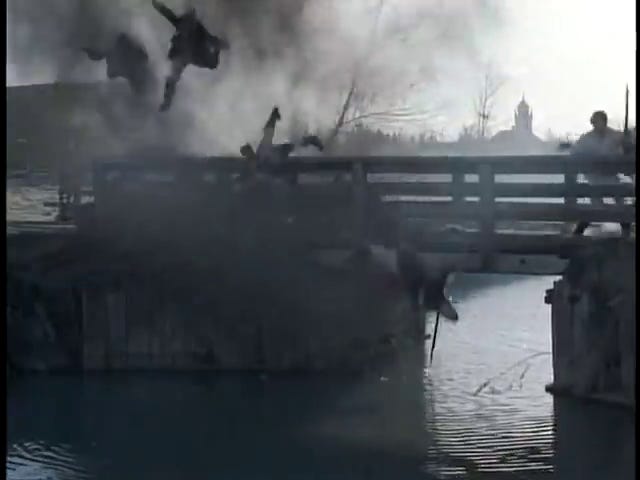
An American militia man shoots Colonel Rall. Surrounded by the Continental Army and receiving the worse of the fighting, the Hessians surrender. After the battle, Mercer treats the mortally wounded Colonel Rall, who begs the Americans not to steal from his soldiers, and “let them keep their money and honor.” Rall would die of his wounds that night.
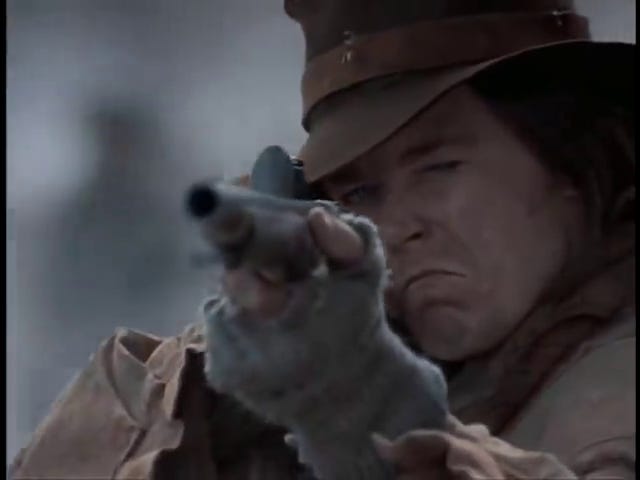
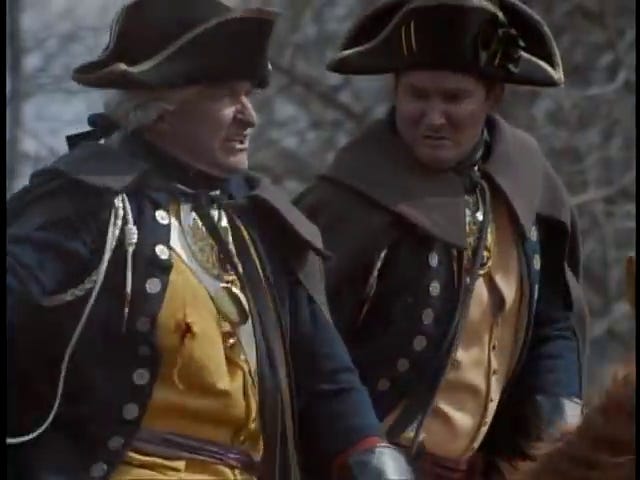
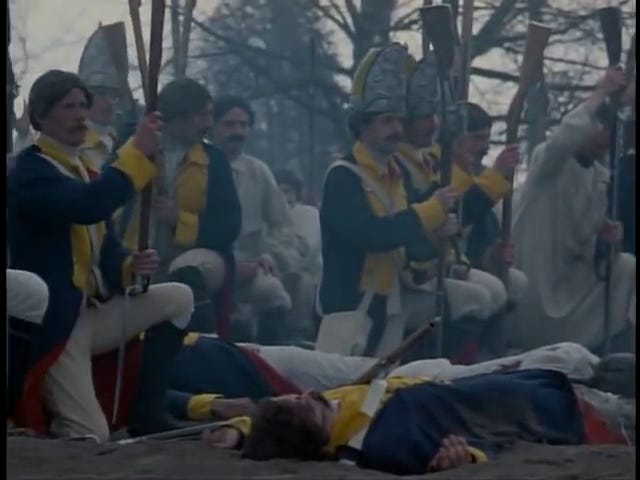
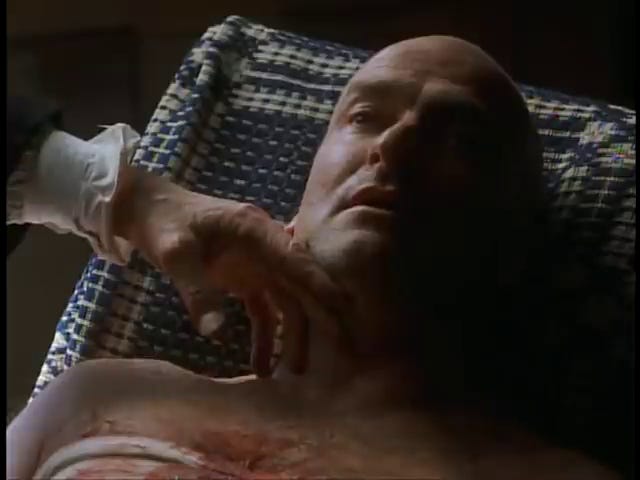
Washington asks Mercer how many of the men were lost or wounded; Mercer replies “none” to both. (This is not completely accurate; while it is possible no Americans were killed in action, two died on the march, and five, including future president Lieutenant James Monroe and George’s cousin William Washington, were wounded). Nevertheless, the success of the Continental Army in this battle remains astounding; it could, perhaps, even be termed a somewhat bloody St. Stephen’s Day miracle.
Compared to the 1984 George Washington miniseries, The Crossing is able to be more thorough in its depiction of the Battle of Trenton, showing in detail the planning of the officers and the harsh conditions faced by the army. It also makes clear that the action was more a raid to seize supplies than a strategically important battle in terms of the land fought over; however, its effects on the morale of the opposing sides certainly was important, perhaps even helping to turn the tide of the war. The miniseries is more accurate in portraying the Battle of Trenton as taking place during a heavy snowstorm, which likely also helped the Americans. George Washington, as played by Jeff Daniels, is perhaps a bit grimmer and certainly more curt with his men than Barry Bostwick’s portrayal, but this is understandable given the dire situation. Due to being on cable at the turn of the millennium rather than network television in the ‘80s, The Crossing is also able to get more violent and vulgar than the miniseries, with Washington’s crude jest about General Knox and the gritty battle scenes. Sometimes, the film may go too far in its attempts to increase the drama or modernize the material, such as when Washington has General Gates removed at gunpoint—although the tension between them certainly fits with some later developments. Hamilton is also depicted in a major role in Washington’s staff, when he was in reality at this time captain of the New York Provincial Company of Artillery, ultimately under the command of General Knox. On the other hand, this film does highlight a couple of now little-known figures, particularly Hugh Mercer, who would die in the Battle of Princeton less than a month later, and John Glover, who despite his disdain for fancy dress and titles, would later serve two terms in the Massachusetts House of Representatives and be a delegate to the state’s convention ratifying the U.S. Constitution. Historical fudging aside, The Crossing remains an interesting (and for a TV movie, surprisingly atmospheric) window into one of the critical moments of the American Revolution.









